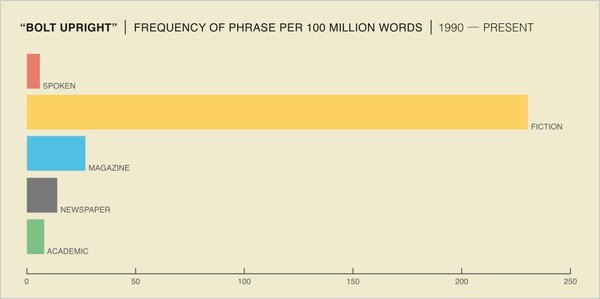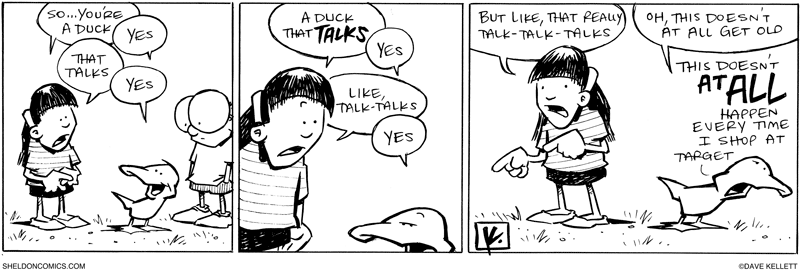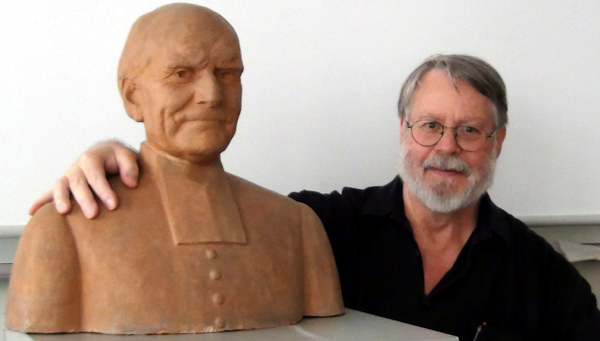Bolting upright, he reached for his dictionary
In the NYT this weekend, Ben Zimmer has a great piece on new horizons in humanities computing: "The Jargon of the Novel, Computed", 7/29/2011. The article is illustrated with a bar chart of the frequency in COCA of "bolt upright" in various genres:
Among the nuggets you can find in Ben's article is an allusion to David Bamman and Gregory Crane, "The Logic and Discovery of Textual Allusion", LaTeCH2008, which alone is worth the price of admission. But the thing that mainly struck me was the possibility that I'd gotten "bolt upright" wrong, all these years.
Read the rest of this entry »







